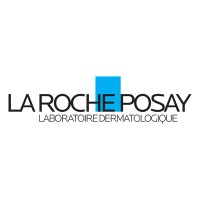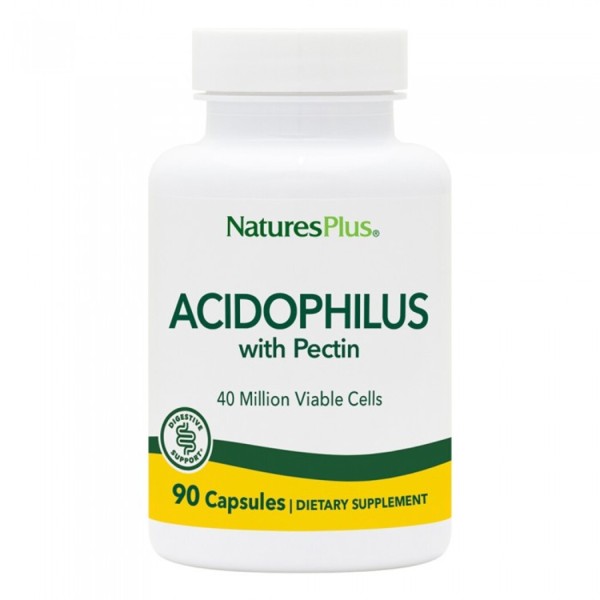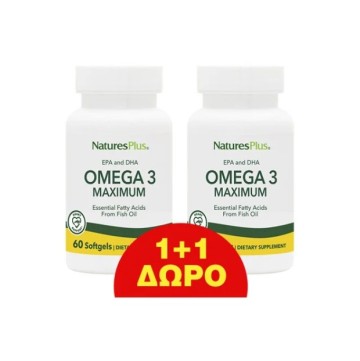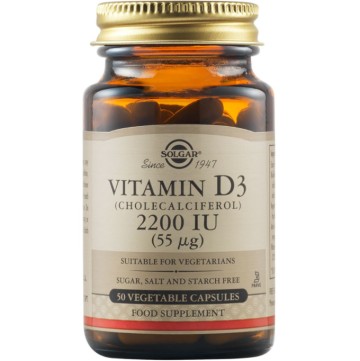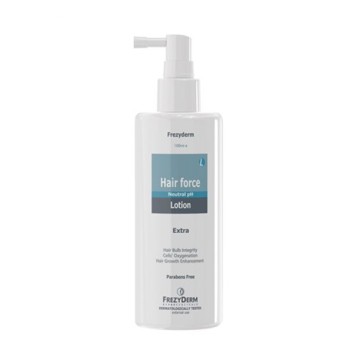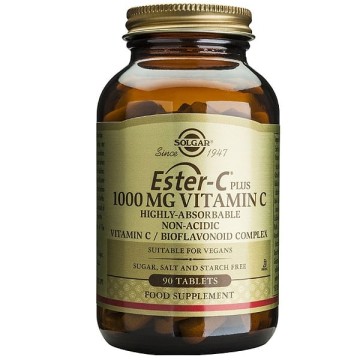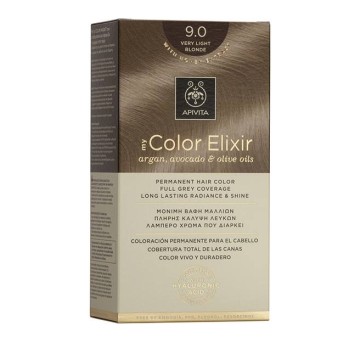Each capsule contains 40 million live acidophilus cells along with 100 mg of citrus pectin, which is an ideal environment for active acidophilus.
Usual use: One capsule (twice) a day. For maximum activity of the acidophilus, keep the product tightly closed in a cool place. After opening, keep in the refrigerator. The product is not suitable for children. EYEACTIVE BACTERIA (PROBIOTICS)
The human gastrointestinal system is a complex micro-ecosystem with delicate balances between the organisms that make it up (about 500). Various factors, such as improper diet, stress, various diseases, toxic substances and drugs, but above all the use of antibiotics, can disrupt this fragile balance, resulting in a disproportionate increase of harmful microorganisms at the expense of beneficial ones.
This pathological condition, which is also called dysbiosis, often leads to dysfunctions and diseases, including weakening of the immune system, diarrhea and other intestinal disorders, food allergies and intolerances, bad breath, chronic vaginal yeast infections in women, etc.
By increasing the population of beneficial bacteria and restoring the disturbed balances it is possible to eliminate the condition or reduce its intensity. Beneficial bacteria are particularly beneficial for almost all intestinal diseases, including Crohn's disease (inflammatory - ulcerative bowel, with possible partial obstruction), colitis and irritable bowel syndrome (spastic colitis). A very good source of probiotics is yogurt, which contains Lactobacillus bulgaricus and Streptococcus thermophilus (Lactobacillus bulgaricus/Streptococcus thermophilus). Some yogurts additionally contain Lactobacillus acidophilus and Lactobacillus bifidus (Bifidobacteriumcum bifidum).
Only yogurts that are truly traditional or labeled as “live” are reliable sources of probiotics. However, good probiotic supplements are the best sources for those who want a rapid enrichment of the small and large intestine with beneficial bacteria, since they contain many millions of active beneficial bacteria.
Properties of Lactobacillus acidophilus
Lactobacillus L. acidophilus is the main type of beneficial bacteria found in the small intestine. It is also present in the woman's vagina, which is completely natural and desirable, since its presence there helps control harmful bacteria and fungi. Acidophilus, like all lactobacilli (there are at least 56 species), is Gram-positive, anaerobic, basically, a bacterium, but under certain conditions it can become aerobic. This is of particular importance, because it can deprive harmful aerobic microorganisms of oxygen. As the word "aerobic" implies, oxygen is necessary for the survival of these organisms.
ACIDOPHILUS AND DIGESTIVE DISORDERS
Acidophilus is essential for the health of the gastrointestinal system in general, and for good digestion in particular, since it produces enzymes that facilitate the digestion of proteins, fats and, above all, dairy products. Indeed, the acidophilus produces the enzyme lactase which is necessary for the digestion (hydrolysis) of lactose, a disaccharide found in milk. In many people, the secretion of lactase from the glands of the small intestine is insufficient, resulting in symptoms such as gas and diarrhea after consuming milk and (rarely) dairy products. In a clinical study with patients suffering from indigestion due to dysbacteriosis (dysbiosis) acidophilus was administered in capsules. Faster results were seen in patients who had undergone antibiotics, who showed restoration of digestive function after 3-4 days of stopping antibiotics. Other patients with symptoms of indigestion, bloating, gas, abdominal pain and pressure in the hypogastrium who had not been treated with antibiotics showed improvement after one week. The improvement continued after two weeks. Patients with lactose (milk) intolerance also noted improvement (Vnitr Lek, 1994, 40:79-83).
Administering an acidophilus (with supplements, live yogurt, or special acidophilus-enriched milk) is vital to the treatment of any type of diarrhea, but especially antibiotic-associated diarrhea. A double-blind study showed that prophylactic administration of acidophilus preparations can help prevent diarrhea in people treated with the antibiotic ampicillin (Amer J Hosp Pharm, 1979, 36:754-57), while another study showed that with infants treated with the antibiotic amoxycillin when they were also (orally) treated with an acidophilus (Clin Ter, 1991, 136:409-13). At this point we would point out that until recently the prevailing opinion was that the treatment with acidophilus should begin after the end of the antibiotic treatment, because the parallel use would neutralize the acidophilus, so it was of no use. But as the studies just mentioned, as well as much more recent ones, show, this is not the case (at least to the extent it was believed). However, some researchers recommend increased doses of acidophilus, of the order of 15-18 billion live cells, in cases of parallel use, and the administration of antibiotics and acidophilus should be far apart (the more, the better) during the day. According to the same researchers, after the end of the antibiotic treatment the acidophilus dosage can be significantly reduced (1-2 billion live cells per day or even less). ANTIBIOTIC PROPERTIES Acidophilus produces natural antibiotics, which have been shown to inhibit the growth of over 20 harmful bacteria. So far, 5 such antibiotics have been discovered, including acidoline and acidophylline.
Unlike synthetic antibiotics, natural acidophilus antibiotics do not cause side effects. In addition to intestinal bacterial infections that cause diarrhea, another fairly common bacterial infection where probiotics can play an important role is bladder infection and inflammation (cystitis). Cystitis is usually caused by the bacterium Escherichia coli and is much more common in women than in men (the mouth of the urethra in women is more exposed to pathogenic microorganisms, and the distance the germs have to travel to the bladder is much shorter , due to the much shorter length of the female urethra). Although in some cases the use of antibiotics is considered imperative, the use of probiotics usually gives much more permanent results, since antibiotics disrupt the vaginal flora and create resistant strains of E. coli. This often results in one infection following another.
In case of such successive urinary tract infections or, in general, whenever antibiotic treatment is given, it is good to use, both internally (oral) and topically, probiotic treatment, inserting 1-2 capsules of acidophilus into the vagina, just before going to bed, and continuing night after night for two weeks. Acidophilus not only fights the bacteria and fungus Candida albicans that cause sinusitis, but is also the best protection against cystitis. Indeed, it creates a natural protective shield around the opening of the urethra that prevents pathogenic bacteria from entering it and traveling to the bladder. It should be noted here that maintaining a healthy intestinal flora is especially important for women, as this helps significantly in maintaining a healthy vaginal flora. Indeed, it is relatively easy to infect the vagina with pathogenic intestinal bacteria. This also explains why lactobacilli, such as acidophilus and bifidobacterium, taken by mouth have a preventive/therapeutic effect against vaginal infections. IMMUNE SYSTEM ANTI-CANCER PROPERTIES Acidophilus contributes to the production of interferon, thus strengthening the immune system, while it also contributes decisively to the reduction of free radicals produced within the body. As is well known, free radicals, whether they are endogenous or enter our body from the environment (with the air etc.) can put our immune system to a severe test, especially when they are present in very large numbers. Pathogenic colonic bacteria produce the largest number of endogenous free radicals. Acidophilus and other beneficial bacteria, by controlling the number of pathogenic bacteria, also control the number of free radicals produced by them. On the other hand, while synthetic antibiotics do not affect viruses, some antibiotic substances produced by the acidophilus, such as asintoline, also have antiviral properties, as shown by in vitro experiments conducted by researchers (I.Y. Handam and EM Mikolajcik) with poliovirus and other viruses. In addition, acidophilus and other lactobacilli produce lactic acid and hydrogen peroxide (H2O2), creating an environment not at all favorable for viruses and microbes. Acidophilus gives good results in many cases of herpes of the mouth and genitals, but also (with lesser success rates) in cases of herpes of the cornea of the eye. Results appear, as a rule, in 1-4 days. So far there is no real cure for the herpes virus, which, once established in the body, remains for life, reactivating intermittently, especially when the immune system is down. Therefore, what acidophilus therapy can achieve is rapid healing of wounds and inactivation of the virus for longer periods of time. The earlier the disease is, the greater the success. Acidophilus and other probiotics have anti-cancer properties, as is expected from any agent that contributes to the strengthening of the immune system. Apart from this general observation, some researchers hypothesize that, to a large extent, the anticancer properties of acidophilus are due to its ability to alter the structure of certain enzymes produced by harmful bacteria (Clostridium et al.). These enzymes seem to have the ability to convert pro-carcinogenic substances into carcinogens. Acidophilus supplements were administered in a clinical study with frequent meat eaters. Fecal analyzes showed that the supplements reduced the activity of the potentially carcinogenic enzymes beta-glucuronidase and nitroreductase (J Nat Canc Inst, 1990, 64(2):255-61).
Lidbeck in the "European Journal of Cancer Prevention" in August 1992, noted that the administration of milk containing an acidophilus culture to patients with colon cancer resulted in an increase in absorbed calcium and a decrease in both soluble fecal bile acids and and bacterial fecal enzymes (two factors that increase the risk of cancer). The same review states that in vitro studies have shown that acidophilus and other lactobacilli can absorb mutagenic (potentially carcinogenic) substances produced during cooking, while clinical studies in humans have shown that acidophilus can significantly reduce the release of mutagenic substances after eating fried foods. Studies in rats experimentally induced with colon cancer by administration of chemical carcinogens showed that acidophilus supplementation delayed the onset of cancer (J Nat Canc Inst, 1990, 64(2):263-5). A study of patients with gynecological tumors who received internal and external radiation of the pelvic area showed that the administration of 150 ml of milk with an acidophilus culture prevented the occurrence of diarrhea associated with radiotherapy (Clin Radiol, 1998, 39(4):435-7) . CONTRAINDICATIONS - PRECAUTIONS Acidophilus is very safe (like probiotics, in general), without toxicity. In relatively rare cases, mild gastrointestinal disturbances can occur, which usually resolve with the passage of days and/or reduction of doses. If the disorders persist, use should be discontinued and the advice of a qualified physician should be sought.
EAN: 097467044807







